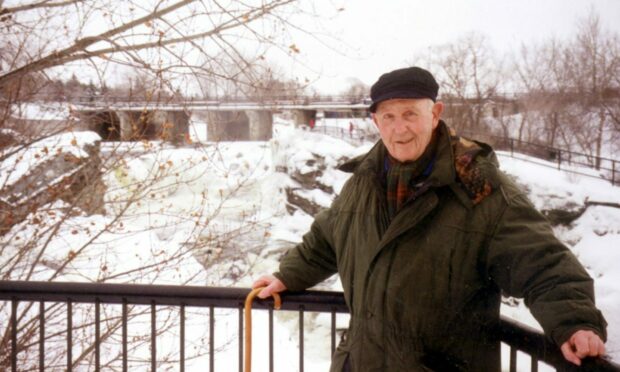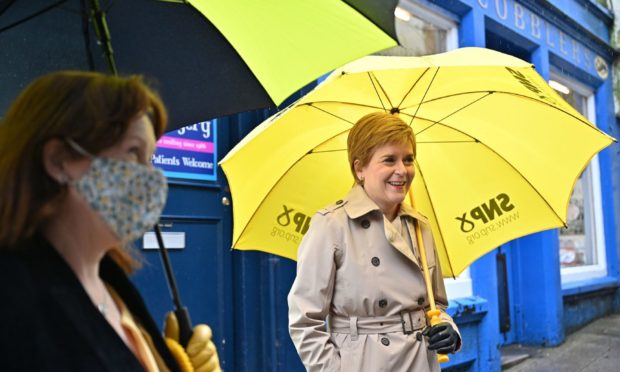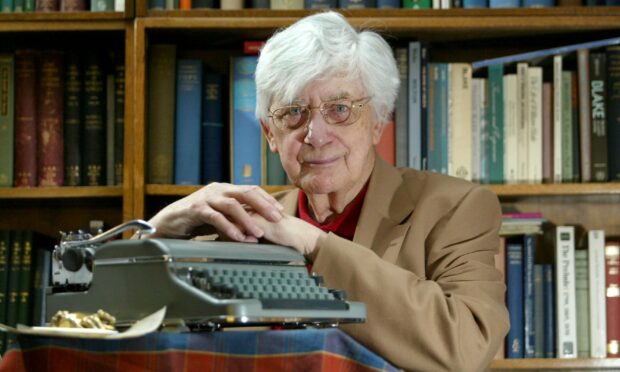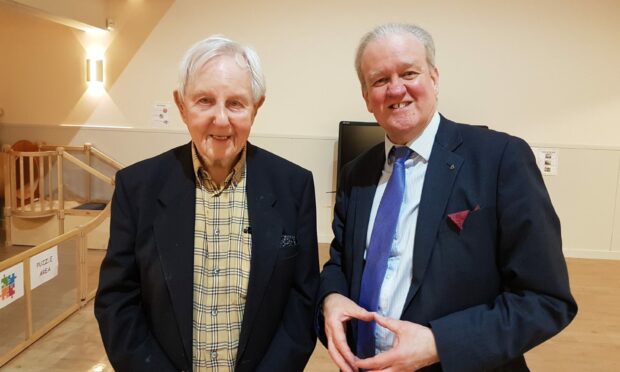A former north-east councillor is among a group of a dozen supporters who have left more than £1 million to the SNP in their wills since 2020.
Dr Norman Allan, a Dufftown-born gynaecologist who served on Grampian Regional Council for a decade, gave the party £250,000 following his death.
It was one of a series of recent donations which have underlined how bequests from backers have become an increasingly important way of raising funds for the SNP.
Official accounts reveal Nicola Sturgeon’s party raised £420,000 from “legacies” in 2020 alone – more than three times higher than the £132,000 reported by UK Labour.
Since 2000, the figures show the SNP has had 70 donations from the bequests of supporters who have died, worth a total of £4.6m.
Almost half of these bequests – a total of 33, worth more than £2m – have been received since the 2014 independence referendum.
Experts put the rise in donations of this kind down to the surge in party membership that followed the Yes campaign’s defeat.
Growing number of bequests
The data shows that 21 of the 70 bequests have come since 2019, worth a combined £1.36m.
More than £1m of that money has been given to the SNP by 12 people since 2020.
A quarter of the cash came from Dr Allan, who died in 2019, although the money reached the SNP in 2021.
Other donations came this year from William Ritchie, who bequeathed £91,996 in March.
A further two accepted in June were from an Edward Montgomery, worth £20,000 and £25,233 respectively.
The largest bequest to the SNP since the turn of the century remains the donations of £917,739 in 2011 and £195,879 in 2012 left by Edwin Morgan, who was Scotland’s first national poet, or makar.
More recently, Edinburgh woman Morven Polson left £370,000 last year, while South Africa-born Estelle Brownrig pledged £120,000 in 2019.
Only the UK Conservative Party regularly raises more from bequests than the SNP, taking in £1.4m in 2020.
Sussex University lecturer Samuel Power, who specialises in researching political financing, said: “I’ve spent quite a lot of time going through the yearly returns and it does quite often jump out at you the legacy numbers, if you will.
“It is something that always stands out and a party that has a lot of these is the SNP.
“Perhaps it just became, because of the independence referendum, and slightly before that as well… the SNP really gained steam and a lot of popularity.
‘It feels like a cause’
“And because it’s a nationalist party, if you will, the Scottish National Party, perhaps there is a particular appeal to bequeathing money after you have gone to that because it feels like a cause for nationalists.
“Or, it could be that this is a defined fundraising strategy. We know that political parties across the UK, but also elsewhere, they have strategies that they follow that they know are quite fruitful for them.”
Professor Robert Johns, who co-authored the book Takeover: Explaining the Extraordinary Rise of the SNP, also pointed to the rise in membership after the 2014 vote.
“The big thing that happened immediately after the referendum was the massive surge in membership of both the Scottish Greens as well, but certainly the SNP,” he said.
“In a sense donating via bequests is another form of political participation in a way, like joining a party.
“All parties look for this kind of thing and I think the SNP kind of had it presented to them more than most, after the referendum.”
An SNP spokesman said: “The SNP is immensely grateful for every legacy, large or small.
“We rely on the kindness and generosity of our members and supporters for income, that’s what helps us keep campaigning to deliver that fairer, greener and more prosperous nation only possible in an independent Scotland.”



